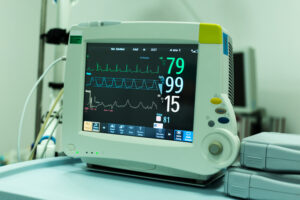Veno-venous extracorporeal membrane oxygenation (VV-ECMO) supportive therapy improves outcomes and reduces mortality for patients with acute respiratory distress syndrome. VV-ECMO, however, also increases the need for RBC transfusions, especially after decannulation of the large cannulae from major veins and removal of circuit tubing containing 500 to 700 mL of the patient’s blood. Some centers utilize blood cell salvage systems (BCS) to collect the patient’s RBCs and re-infuse the washed cells into the patient. To evaluate whether BCS decreases the need for RBC transfusions after VV-ECMO cannulae are removed, researchers conducted a target trial emulation analysis of retrospective data from two ECMO centers in London. Both centers used the same treatment guidelines and transfusion thresholds, but one center utilized a BCS system, and one did not. Between 2015 and 2022, 841 adults (median age 43 years, 41% female) underwent VV-ECMO—367 (44%) at the center with the BCS system and 474 (56%) at the center without it. BCS reduced the risk of receiving packed RBC transfusions by 17% within two days of decannulation; patients at the BCS center received an estimated 0.2 units of packed RBCs compared to 0.5 units at the center without BCS. Furthermore, hemoglobin levels were significantly higher in the patients who received BCS compared to those who did not. BCS may increase hemoglobin levels and decrease RBC transfusions after decannulation, but the economic implications and feasibility require further study.
Reference:

